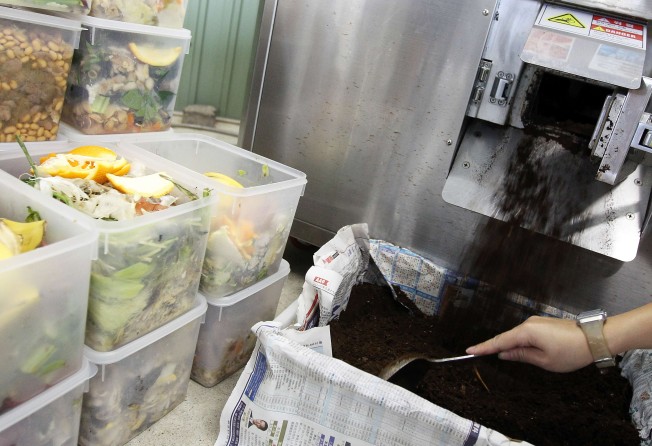Composting: how Hong Kong can make the best use of its food waste

Food waste makes up a third of our trash – the largest category – taking up Hong Kong’s limited landfill space.
The need for food donations to reduce the volumes of edible and wholesome food going into landfills is important, but what about food scraps from cooking, or leftover food from meals?
Around 70 per cent of Hong Kong’s food waste comes from homes, making it impractical for it to be redistributed on a large scale. Yet, they are resources that shouldn’t be sent to the landfills either.
Most food waste can be processed into animal or fish feed. Feeding it to the earth also works, as composted food waste is a good soil conditioner. We need look no further than Chi Fu Fa Yuen for a successful local case. Under a campaign organised by the estate’s residents, the community collects and composts its food and yard waste.
The resulting compost is free for residents to use in the estate’s flower and vegetable gardens. The highly popular programme is being studied by others to replicate its success.
Outside Hong Kong, cities such as San Francisco and Toronto have their own municipal “green bin” programmes for handling organic waste, where the composted waste is used in parks or sold to local farmers.
Composting is clean and simple to do. It complements community gardens by providing a source of free, nutrient-rich soil, while keeping food waste out of landfills.
To start, get a large container or a compost bin. Layer the bottom with “brown” materials such as dried leaves or shredded newspaper. Add in “green” materials such as vegetable scraps, tea leaves or coffee grounds. Moisten the pile with a bit of water. Cover the container and turn the pile over once every couple of weeks for aeration.
A healthy compost pile should be composed of one-third green and two-thirds brown material. Meat, bones and dairy products should be avoided. Done properly, the compost should be ready in three to four months.
Of course, composting is a last resort. Even the best solutions fall apart if we don’t avoid food waste in the first place.
We should only prepare or order as much as we can eat. Leftover food can be saved for tomorrow’s meal. Food scraps from cooking can be used in other dishes. Wholesome food should always be cherished and eaten.
Wendell Chan, project officer, Friends of the Earth (HK)